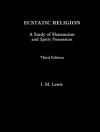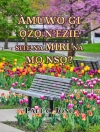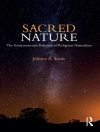Identifying the group or position that the author of Colossians attacks in ch 2 of that letter has long occupied scholars, but no interpretative consensus has resulted. This study details the inadequacy of existing reconstructions and offers in their stead the portrait of philosophically inclined Gentiles drawn to the Jewish community and then to the Christian congregation by ideas and practices congenial with their view of the world. Central to the Colossian philosphy’s outlook was the pursuit of divine knowledge or wisdom through (1) the order of the cosmic elements (2.8, 20); (2) the bodily ascetism that unencumbered the investigative mind (2.18, 23); and (3) intermediaries between heaven and earth (angels and demons; 2.18). These features are typical of Middle Platonism in the New Testament era. At the same time, the philosophy’s calendar (2.16) and stress on humility (2.18, 23) indicate Jewish and Christian influences. Hence, the Colossian philosophy appears to be a distinctive blend of popular Middle Platonic, Jewish, and Christian elements that cohere around the pursuit of wisdom. Flyer blurb: This study details the inadequacy of existing reconstructions and offers in their stead the portrait of philosophically inclined Gentiles drawn to the Jewish community and then to the Christian congregation by ideas and practices congenial with their view of the world.
Richard E. DeMaris
Colossian Controversy [PDF ebook]
Wisdom in Dispute at Colossae
Colossian Controversy [PDF ebook]
Wisdom in Dispute at Colossae
Mua cuốn sách điện tử này và nhận thêm 1 cuốn MIỄN PHÍ!
Ngôn ngữ Anh ● định dạng PDF ● Trang 170 ● ISBN 9780567490575 ● Nhà xuất bản Bloomsbury Publishing ● Được phát hành 1994 ● Có thể tải xuống 6 lần ● Tiền tệ EUR ● TÔI 3064110 ● Sao chép bảo vệ Adobe DRM
Yêu cầu trình đọc ebook có khả năng DRM












